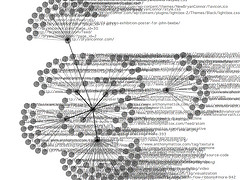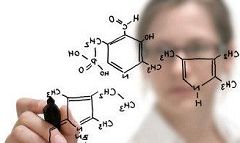Strategic Planning and Information Use: The Role of Institutional Leadership in the Community College

Community college presidents face a daunting challenge in trying to manage and guide an organization that is, by its nature, decentralized and bureaucratic in its decision- making processes, and at the same time they face external demands for greater accountability and internal demands for information. Although technological systems can accomplish these kinds of data collection tasks easily, the implementation of such systems is itself problematic.
What Schools Can Teach the Corporate World

Corporations and educational institutions are different, but they share many of the same barriers that stop people from effectively sharing information. Here, Lisa Petrides and That Nodine describe how schools,c olleges, and universities in the US have applied KM practices from business organizations, and what corporations can learn from KM in education.
Knowledge Management for School Leaders: An Ecological Framework for Thinking Schools

This paper examines how K-12 educational administrators and teachers might use knowledge management to assist in creative effective learning envrionments.
Organizational Learning and the Case for Knowledge-Based Systems

Internet in Higher Education

Web-Based Technologies for Distributed (or Distance) Learning: Creating Learning-Centered Educational Experiences in the Higher Education Classroom

The purpose of this paper is to examine the ways in which a higher education classroom that used Web-based technology as a supplement to a regularly scheduled classroom-based course, addressed issues of learning and learning-centered education. The findings presented in this paper, although based only on a one-semester class, lend credence to the argument that distance learning cannot be merely delivered to students, and that as educators we must instead focus on how to create learning-centered environments supported by technology, not driven by it.
The Politics of Information Management

View Originalhttp://www.igi-global.com/chapter/politics-information-management/6300
Development of a Knowledge Collaborative for Cross-Organizational Learning (KCCOL)
With support from the Metlife Foundation, ISKME has been facilitating a Knowledge Collaborative for Cross-Organizational Learning (KCCOL) for seven grantee organizations, including: Learning Forward, Asia Society’s Partnership for Global Learning, New Teacher Center, College Summit, Education Trust, New Leaders for New Schools, and the Center for Teaching Quality. The goal of this project is to foster collaboration across the participating grantee organizations to create a shared voice and joint action around education reform issues of importance to them.
By promoting the use of the KCollab (an ISKME-created web-based platform) and a set of processes to support cross-organizational learning among the seven MetLife grantees, ISKME has sought to explore and apply research-based practices for knowledge sharing and collaboration among them. The general theory of action on which this work is based is that as KCollab users interact with content on the site and with each other over time, it is hypothesized that the grantees become more knowledgeable about their colleagues, leading to increased sharing and collaboration.

What does knowledge sharing and collaboration look like in an online community of practice? Does knowledge sharing in an online environment "evolve" from lurker-like behaviors to more complex and trust-based sharing and co-creation, or are other processes at play? What practices best facilitate collaboration among grantees?
Cyberlearning at Community Colleges (C3): Faculty Scholarship, E-science, and Open Curriculum
The Cyberlearning at Community Colleges (C3) Project is designed to engage biology faculty in forming communities to leverage digital library resources and social networking technologies toward enhanced biology instruction.
As the evaluation partner for C3, ISKME examined potential changes in faculty perceptions and practices as a result of participation in the project, as well as the perceived successes and challenges of the role of cyberlearner. The research sought to shed light on how the cyberlearning model emerges, in terms of what forms it takes and how and whether it is aligned to new teaching and learning practices for participating biology faculty. The research also sought to inform the relationship between the emergent cyberlearning model and science —namely, how the cyberlearning model adds to science as a discipline, and conversely what science as a discipline contributes to the cyberlearning model. Finally, because cyberlearning as conceptualized within the C3 project encompasses knowledge sharing about resource use, teaching practices and technology, the research attempted to provide insights into the ways in which knowledge sharing occurs the types of knowledge shared, and the role of knowledge sharing in potentially enhanced teaching and learning practices.
Data collection included interviews with project leaders and C3 faculty participants, C3 workshop observations, and a series of surveys to track the impact of C3 involvement on faculty participants' teaching behaviors and practices. Data collection also focused on an analysis of participant activities on C3-related project sites (to assess the amount and type of C3 content created, modified, used and reused by individuals and groups of users), and the activities of teachers online, including types of knowledge shared and forms of interactions.

-
How and to what extent are teachers practicing new pedagogical practices and knowledge sharing behaviors as a result of their participation in the C3 Project?
-
What do teachers perceive as the successes and challenges of implementing the cyberlearning model, and what supports best facilitate the implementation of the model?
-
What do teachers perceive as the impact of ‘cyberlearning’ on teaching and learning, and on the role of teachers and learners?
Open Science Resources: Towards the development of a Shared Digital Repository for Formal and Informal Science Education
Open Science Resources (OSR) is an OPAL award-winning collaborative European Commission model project that aims to create a shared repository of learning resources currently dispersed in European science museums and science centres. The aim of the OSR project is to create a shared repository of scientific digital objects — currently dispersed in European science museums and science centres — to make them more widely and coherently available, searchable, and usable in the context of formal and informal learning situations.
ISKME is a consultant on the OSR project, advising the consortium on standardization, metadata structures, open content policies in education, and quality assurance.


